
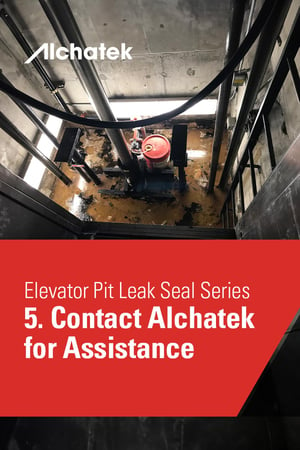 Addressing the complexities of hydraulic elevator pit repairs requires more than just a superficial understanding of the issue. It necessitates a deep dive into the technical aspects and an experienced hand to guide the process. In this realm, Alchatek emerges as a beacon of expertise and support for property owners and managers.
Addressing the complexities of hydraulic elevator pit repairs requires more than just a superficial understanding of the issue. It necessitates a deep dive into the technical aspects and an experienced hand to guide the process. In this realm, Alchatek emerges as a beacon of expertise and support for property owners and managers.
Technical Guidance
Guidance from experienced specialists provides major advantages when dealing with complex elevator pit leaks. The right partner will have technical knowledge and practical experience addressing infrastructure challenges in buildings. Property owners can benefit from their expertise in accurately diagnosing issues, devising customized sealing solutions, and preventing future leaks through proactive maintenance plans. This thoughtful approach can save major time, disruption, and costs compared to quick fixes or generic solutions.
Contractor Referral
An experienced referral partner can provide significant advantages by connecting property owners with qualified elevator pit leak contractors. Matching project needs with specialist experience and enforcement of high standards ensures repairs are done right the first time. Efficient access to customized solutions secures effective long-term fixes and avoids unnecessary costs from trial and error. Strategic contractor referrals pave the way for safe, quality-focused leak repair.
Long-Term Partnership
Partnering with Alchatek for elevator pit repair projects goes beyond just solving an immediate problem. It ensures that the repair process is guided by expert knowledge and executed by skilled professionals. The additional benefit of Alchatek's involvement lies in its commitment to cost-effective and environmentally safe solutions, aligning with the broader goals of property management in terms of sustainability and financial viability.
Call 404-618-0438 or fill out this form to contact Alchatek today!
Addressing the complexities of hydraulic elevator pit repairs requires more than just a superficial understanding of the issue. It necessitates a deep dive into the technical aspects and an experienced hand to guide the process. In this realm, Alchatek emerges as a beacon of expertise and support for property owners and managers.
Technical Guidance
Guidance from experienced specialists provides major advantages when dealing with complex elevator pit leaks. The right partner will have technical knowledge and practical experience addressing infrastructure challenges in buildings. Property owners can benefit from their expertise in accurately diagnosing issues, devising customized sealing solutions, and preventing future leaks through proactive maintenance plans. This thoughtful approach can save major time, disruption, and costs compared to quick fixes or generic solutions.
Contractor Referral
An experienced referral partner can provide significant advantages by connecting property owners with qualified elevator pit leak contractors. Matching project needs with specialist experience and enforcement of high standards ensures repairs are done right the first time. Efficient access to customized solutions secures effective long-term fixes and avoids unnecessary costs from trial and error. Strategic contractor referrals pave the way for safe, quality-focused leak repair.
Long-Term Partnership
Partnering with Alchatek for elevator pit repair projects goes beyond just solving an immediate problem. It ensures that the repair process is guided by expert knowledge and executed by skilled professionals. The additional benefit of Alchatek's involvement lies in its commitment to cost-effective and environmentally safe solutions, aligning with the broader goals of property management in terms of sustainability and financial viability.
Call 404-618-0438 or fill out this form to contact Alchatek today!




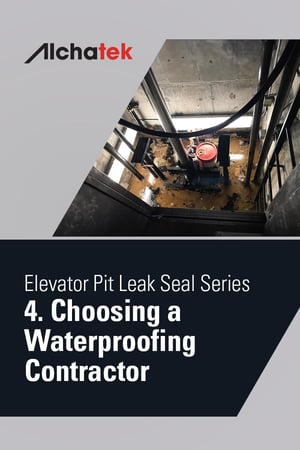 Polyurethane grout leak repair projects in elevator pits require specific skills and knowledge. A qualified contractor not only addresses current issues but also helps prevent future problems, ensuring the longevity and safety of your elevator system.
Polyurethane grout leak repair projects in elevator pits require specific skills and knowledge. A qualified contractor not only addresses current issues but also helps prevent future problems, ensuring the longevity and safety of your elevator system.
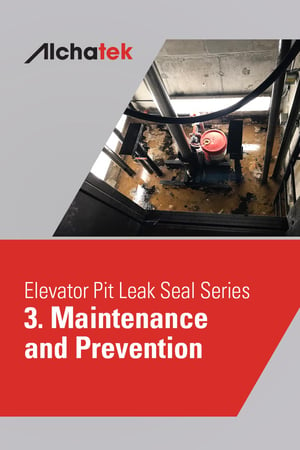 Neglecting regular maintenance can lead to several problems, besides corrosion, including water accumulation, which, when mixed with oil from hydraulic elevators, creates an environmental hazard and necessitates costly specialized removal. Regular maintenance not only prevents these issues but also extends the life of the elevator system and ensures compliance with safety regulations. It is also key to early leak detection and timely implementation of polyurethane leak seal projects when necessary.
Neglecting regular maintenance can lead to several problems, besides corrosion, including water accumulation, which, when mixed with oil from hydraulic elevators, creates an environmental hazard and necessitates costly specialized removal. Regular maintenance not only prevents these issues but also extends the life of the elevator system and ensures compliance with safety regulations. It is also key to early leak detection and timely implementation of polyurethane leak seal projects when necessary.
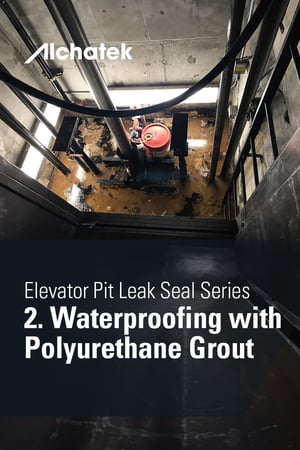 Following the previous discussion on the risks associated with water leakage in hydraulic elevator pits, this section focuses on an effective solution: polyurethane grout. Polyurethane grout is a highly efficient material used in construction for sealing and waterproofing. Its unique properties make it an ideal choice for addressing the issue of water leakage in elevator pits.
Following the previous discussion on the risks associated with water leakage in hydraulic elevator pits, this section focuses on an effective solution: polyurethane grout. Polyurethane grout is a highly efficient material used in construction for sealing and waterproofing. Its unique properties make it an ideal choice for addressing the issue of water leakage in elevator pits.
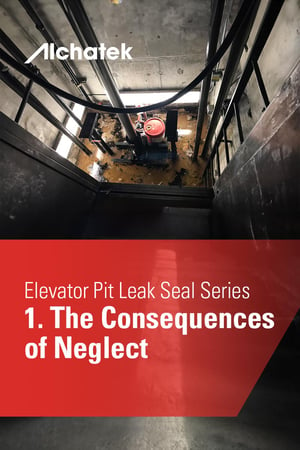 In the world of commercial and industrial buildings, hydraulic elevators are a common fixture. Integral to these systems are elevator pits, located at the bottom of the elevator shaft. They house important components that facilitate the elevator's movement. While often overlooked, these pits are vital for the smooth operation and safety of the elevator system.
In the world of commercial and industrial buildings, hydraulic elevators are a common fixture. Integral to these systems are elevator pits, located at the bottom of the elevator shaft. They house important components that facilitate the elevator's movement. While often overlooked, these pits are vital for the smooth operation and safety of the elevator system.
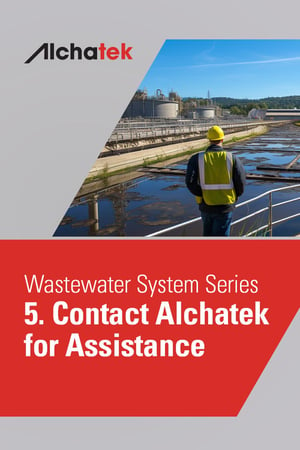 For municipalities, the adoption of polyurethane grout represents a commitment to cost efficiency, sustainability, and long-term planning. The following outlines the steps municipalities can take to effectively implement polyurethane grout solutions, ensuring that technical proficiency goes hand-in-hand with the economic benefits.
For municipalities, the adoption of polyurethane grout represents a commitment to cost efficiency, sustainability, and long-term planning. The following outlines the steps municipalities can take to effectively implement polyurethane grout solutions, ensuring that technical proficiency goes hand-in-hand with the economic benefits.
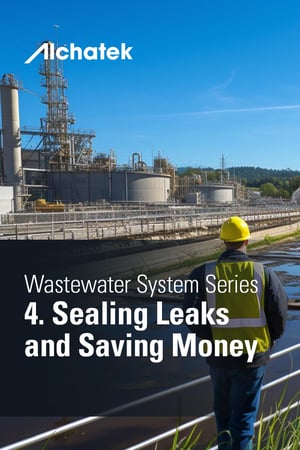 In the realm of wastewater management, the conversation around repair methods is often punctuated by the concern for cost. For municipal managers and administrators, understanding the financial implications of infrastructure repair decisions is as crucial as comprehending their technical benefits.
In the realm of wastewater management, the conversation around repair methods is often punctuated by the concern for cost. For municipal managers and administrators, understanding the financial implications of infrastructure repair decisions is as crucial as comprehending their technical benefits.
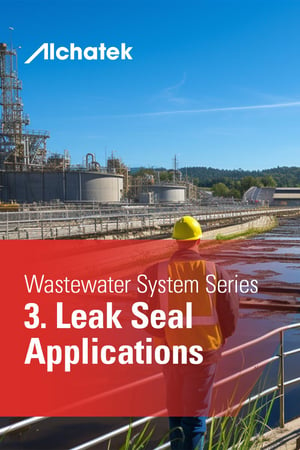 Municipal managers and administrators may be interested in the ways in which polyurethane grout can be strategically applied to different structures within the wastewater system—manholes, pipes, and lift stations—to ensure efficient, cost-effective operations.
Municipal managers and administrators may be interested in the ways in which polyurethane grout can be strategically applied to different structures within the wastewater system—manholes, pipes, and lift stations—to ensure efficient, cost-effective operations.
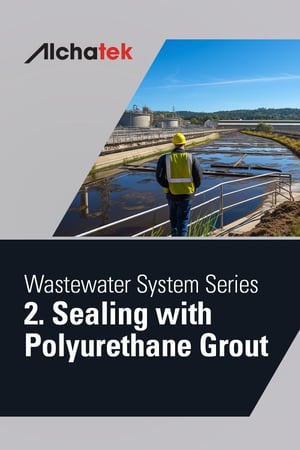 In the quest to maintain robust wastewater infrastructure, polyurethane grout emerges as a material that exhibits superior sealing capabilities, flexibility, and longevity. Its unique chemical structure allows it to expand upon contact with water, creating an effective and durable seal that traditional materials cannot match.
In the quest to maintain robust wastewater infrastructure, polyurethane grout emerges as a material that exhibits superior sealing capabilities, flexibility, and longevity. Its unique chemical structure allows it to expand upon contact with water, creating an effective and durable seal that traditional materials cannot match.
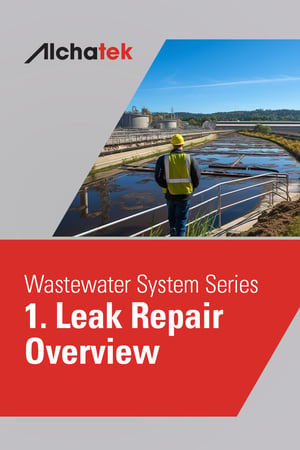 Wastewater management is an essential component of municipal operations, pivotal for public health and environmental protection. The intricate network of sewers, manholes, and lift stations must always function optimally. Ensuring the integrity of this infrastructure is not just about maintenance; it’s about safeguarding the community's well-being.
Wastewater management is an essential component of municipal operations, pivotal for public health and environmental protection. The intricate network of sewers, manholes, and lift stations must always function optimally. Ensuring the integrity of this infrastructure is not just about maintenance; it’s about safeguarding the community's well-being.